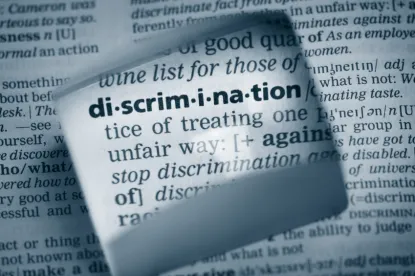Quick Hit:
On December 22, 2020, a federal judge issued a nationwide preliminary injunction enjoining sections of President Trump’s recent “Combatting Race and Sex Stereotyping” Executive Order (the “Executive Order”) that limit government contractors’ anti-discrimination and diversity trainings. The injunction prohibits the Defendants from enforcing the Executive Order as it pertains to federal government contractors and grantees.
Key Takeaways:
The Executive Order has garnered a lot of attention and raised significant concerns among federal government contractors and grantees. The Court’s Order gives these stakeholders some relief. However, the Judge’s ruling is not a final adjudication. Although the government is currently prohibited from enforcing the sections of the Executive Order applying to federal contractors and federal grantees, unless and until a final injunction is issued or the Executive Order is rescinded, contractors and grantees may still have to deal with the Executive Order in the future.
More Detail:
As we previously reported, LGBT advocacy groups filed this lawsuit challenging the Executive Order, and alleged that the Executive Order “plainly discriminates against speech on the basis of . . . content and viewpoint . . . and constitutes a clear violation of the First Amendment.” Plaintiffs sought a preliminary injunction, which Judge Beth Labson Freeman of the United States District Court for the Northern District of California granted.
In conducting its analysis, the Court applied a balancing test, weighing the government’s interests as a federal contractor against the Plaintiffs’ First Amendment rights. When a government entity is acting in its role as an employer, as is the case here, it has “broader discretion to restrict speech;” however, the restrictions “must be directed at speech that has some potential to affect the entity’s operations.” Here, the Court found that the Government’s interest was outweighed by the effect of the Executive Order on the Plaintiffs’ “freedom to deliver the diversity training and advocacy that they deem necessary to train their own employees.” Further, the Government has conditioned grant funding “on a speech restriction that is outside the confines of the grant program.” The Court ruled that the prohibition goes too far to restrict speech, as the Executive Order effectively curtails the voices of scholars and intellects and “inhibits th[e] advancement” of “intellectual progress.”
With respect to the Plaintiffs’ allegations that the Executive Order is unconstitutionally vague, the Court not only agreed that the Executive Order contains much ambiguity with respect to what conduct is prohibited, but also noted that “the Government’s own interpretation of the reach of the Executive Order provides even more uncertainty about the scope of prohibited conduct.” As such, the Court found that the Plaintiffs’ met their burden in demonstrating the Executive Order’s vagueness.
Ultimately, because the Plaintiffs were able to show that the Executive Order has a “significant adverse impact on their organizations and clients,” and the Government was not able to show that a preliminary injunction would “prejudice it or harm the public interest,” the Court granted Plaintiffs preliminary injunctive relief.
We will continue to advise our readers of any further noteworthy developments in this lawsuit.




 />i
/>i

